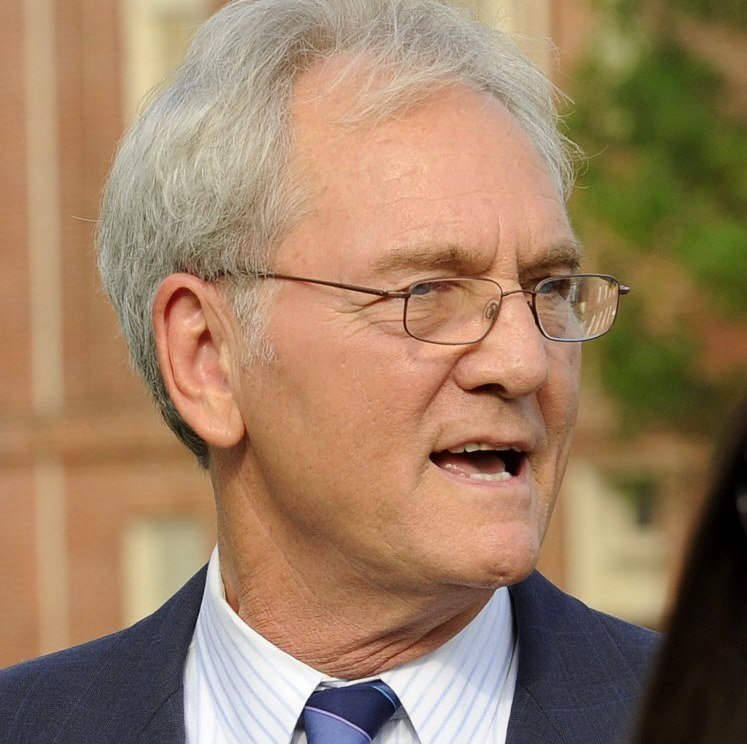Alabama Rises

A Former Governor, a Pastor, and a Friend Join Forces to Abolish Medical Debt in Alabama‘s “Black Belt”
Imagine opening a letter to find that a hospital bill you cannot pay has suddenly been taken care of. Gone. Forgiven.

This is a gift of kindness that inspired Don Siegelman, Alabama’s last Democratic Governor (1999 through 2003), a Pastor (Gary Furr), and entrepreneur Bart McCorquodale (CEO of McCorquodale Transfer) to retire $9 million in medical debt in Alabama‘s “Black Belt.” How? By employing RIP Medical Debt, the national charity that has already abolished more than $10 billion in such debt for 7 million Americans.
Medical debt was cleared not only for people living in Alabama’s Black Belt region, but also for those in Alabama’s largest counties (Jefferson, Madison, Montgomery, and Mobile), which have pockets of areas demographically identical to Alabama’s Black Belt.
“After a meeting we had in Alabama’s Black Belt to talk about the moral concern of people without healthcare coverage, Governor Siegelman led us to see a way to free and unstress people whose bills hurt their credit and limit their lives,” said Gary Furr. Governor Siegelman added, “This gift is given in the hope that paying off this medical debt will lead to expanded Medicaid, and better medical emergency facilities and to solutions to keep this cycle of debt from repeating. Much of this debt could’ve been avoided if Alabama had expanded Medicaid. We have hospitals closing cutting off services to women who need obstetrician care, counties without hospitals or even doc-in-the-box facilities. Healthcare in Alabama has reached a crisis that should have and could have been avoided.”
According to the Alabama Department of Public Health, the Alabama has a higher percentage of the uninsured population than the rest of the U.S. (17.5 % for Alabama compared to 13.6% nationally) in 2019.
Siegelman, using his vast political and social contacts, talks about expanding Medicaid by using existing federal funding. In doing so, Alabamians would be able to create a public/private partnership to close the coverage gap, as Iowa and Arkansas have done.
Because doctors are generally reluctant to take Medicaid patients, when he was governor Siegelman increased the reimbursement rates for Ob-Gyns, created a program called Smile Alabama, and also increased the reimbursement rate for dentists. He also put an executive amendment on an insurance industry bill that required all insurance providers to provide coverage for mammograms and colonoscopies.
Prior to his governorship, in 1995 when Siegelman was lieutenant governor, he worked with the Clinton White House to ensure that Alabama became the first state to implement the Children’s Health Insurance Program, which was named the All Kids program. It’s now a public/private partnership, using federal, state, and Blue Cross Blue Shield money. Every child covered has a BCBS insurance card. Siegleman was able to get this done by overriding the objections of the Republican governor and the Speaker of the House, putting $10 million into the Health Department’s budget through an agreement with the head of the health department, which was not under the control of the then-current governor. Siegelman then used the money to get a 90% match—so for $10 million, they got $9 million from the federal government to expand Medicaid and make insurance available for working families who had children.
Governor Siegelman declared: “This is a determined ‘Awareness Campaign’ to bring to Alabamans’ attention the horrors of impossible-to-pay healthcare costs.” It’s time for the Alabama to expand Medicaid, work with Alabama hospitals, and use existing federal funds to establish emergency medical outpatient centers in underserved regions of our state. We need to close the coverage gap.”
RIP Medical Debt
How RIP came to exist is the story of a massive change of heart that began in, of all places, New York City’s Zuccotti Park during the Occupy Wall Street protests of 2011. “I have never experienced so much energy in my life,” recalled Jerry Ashton. He and a friend, both executives in the debt collection business, dropped in on the protesters. The experience upended their lives.
Ashton said, “When they discovered that there were bill collectors in Occupy Wall Street, they came to me and Craig Antico and said, ‘Could you help us go to the debt market and buy that debt, so that we can forgive it and publicize it?”
In 2014, Ashton and Antico turned the concept into RIP Medical Debt, a charity that buys up delinquent medical debt at pennies on the dollar, just as debt collectors do – meaning even small donations to the charity have a big impact.
Ashton said, “RIP is not the solution. RIP is a charity that sweeps up after the parade. The health care system is producing more people with unpayable debt than we can even handle.”
What RIP Medical Debt has been able to achieve is a kind of miracle: As one of RIP’s recipient says: It makes anyone who is doubting, ‘Is there any good in the world still?’ It gives you hope that there is good somewhere.”
Additional Information
- Investigation finds 40% of all adults in U.S. struggle with health care debt (CBS Mornings)
- “I feel like I will be in debt the rest of my life”: Medical bills are weighing down Americans (CBS Evening News)
- “We didn’t have any hope left”: Medical debt crippling U.S. families (CBS Evening News)
- Don Siegelman teams up with pastor, businessman to wipe out millions in medical debt for 5,400 Alabamians
- Former Alabama gov, nonprofit partner to abolish medical debt in Black Belt region
- Americans often “forced” to pay medical bills they don’t owe, feds say (Moneywatch)
